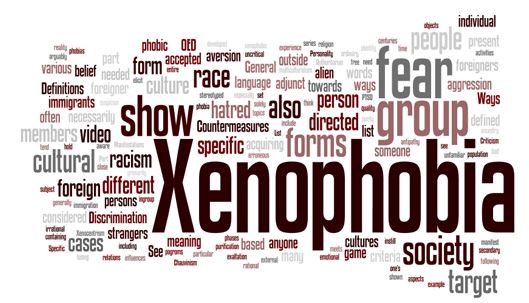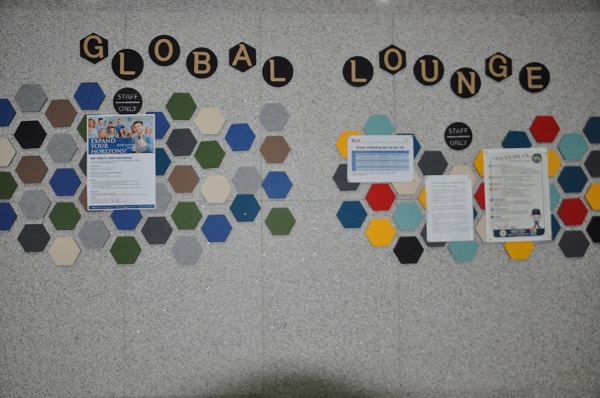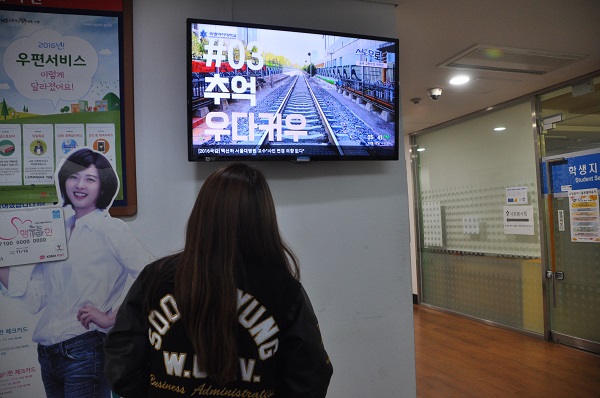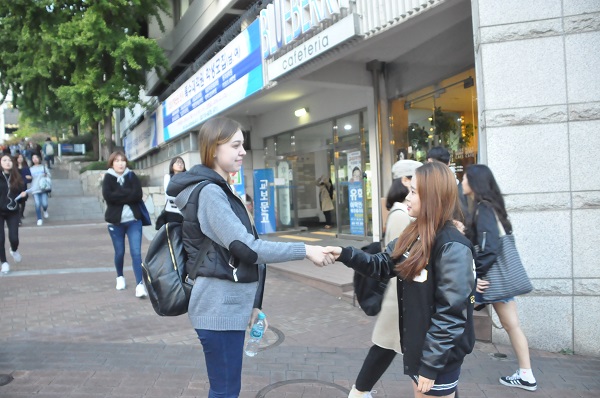
With the world shrinking, people are moving about from nation to nation. Even at Sookmyung Women’s University, there are plenty of exchange students from different countries such as China, America, Morocco, and so on. Though most students are friendly, some students show signs of xenophobia, the fear and hatred of foreigners. Why does xenophobia still exist worldwide, despite the world having become more globalized?

Xeno + Phobia
Xenophobia is a word formed by combining the word ‘xeno’, which means foreign and the word ‘phobia’, which means fear or hatred. In other words, xenophobia refers to a fear and hatred of foreigners. Xenophobia exists mainly because of two reasons, the first of which is employment and income. Today, Korea invites foreigner from outside countries to come and work in the nation. Statistics show that since 2010, there is an annual increase of about 80,000 to 90,000 foreign workers coming into Korea to work.1) They live, work, and raise children in Korea. Thus, foreign workers are seen as stealing works from locals. However, this also goes the other way. That is, Koreans are also going overseas to work in other nations as well. What is really causing the uproar in Korean society is the wage that is paid to contracted foreign workers is roughly equivalent to that paid to Koreans. According to Statistics Korea, the average wage of foreign workers is 1,980,000 won to 1,990,000 won a month, but 11.9% of Koreans earn less than 1,000,000 won and only 36.4% receive 1,000,000 to 2,000,000 won.2) In other words, the wage is very similar. Koreans are arguing that it is because of foreign workers that their salary is keep so low, and this anger has led to xenophobia.
A second reason xenophobia is growing is because of increased crimes committed by foreigners. According to the judicial affairs yearbook, the number of foreigner engaging in criminal actions has increased rapidly from 13,045 at year 2004 to 35,281 at year 2013. Moreover, the number of criminals is not expected to fall below 30,000 as it has been over 30,000 each year since 2008.3) The increase in criminal behavior by foreigners has brought about hatred and fear among Koreans towards foreigners. It can even be seen on campuses around the nation. According to a student from the University of Seoul, though she knows not every foreigner is bad, she tends to be more careful when she meets foreigners because she can’t be sure bad things will not happen to her. Like her case, students are reluctant to mingle with international students due to the increased criminal cases being filed against foreigners. Foreigners are now perceived negatively in society.

The Dark Shadow of Xenophobia
Xenophobia itself is a problem, but it can lead to more serious problems both for Koreans and the foreigners residing in Korea. First, it can bring about discrimination based on race. In other words, xenophobia is intertwined with one’s race or nationality. In 2012, a Korean-Chinese named Oh Wonchun was convicted of murder in the Suwon area. This caused ill-feelings towards Korean-Chinese people, and Koreans now avoid the area where the murder occurred, especially in the early morning and late evening. However, in Seoul in Seorae Village, despite the multitude of foreigners and foreigner-visited eateries, Koreans do not hesitate to visit the area. The difference is that Seorae Village tends to attract Western nation peoples, not Asians. Koreans are not afraid of visiting Seorae Village, and are often seen there enjoying foreign cultures. This phenomenon is occurring because Koreans believe that most foreigners likely to cause crimes are the Korean- Chinese or the South-East Asians. However, according to the news, the number of crimes committed by Westerns is similar to the number committed by South-East Asians. Despite the news media announcement, xenophobia according to race is developing in Korea.
Another problem that has arisen due to xenophobia is generalization of foreigners. Since the number of crimes committed by foreigners is on the rise, people are seeing foreigners now as potential criminals. This view is harming both Koreans and foreigners because it creates a sense of uneasiness in the land. For the expats living in Korea, they will feel both physically and mentally hurt since the eyes on them are no longer as friendly as they once were. Kim Sookja, Chairperson of the General Association of Citizens, said, “Koreans nowadays tend to fear a person as soon as they hear the person is Chinese and they also do not want to buy from Chinese markets."4) Likewise, since locals are starting to generalize foreigners, innocent foreigners are being hurt and it is becoming more and more difficult to live in Korea. Cho Wonhak, a Korean-Chinese, said, “Koreans should not generalize foreigners. Not all of us are bad. I still have faith that Koreans will stop looking at us with jaundiced eyes since I have always been treated well and have been shown kindness by Koreans."

To Remove the Dark Shadow
To alleviate the problems caused by xenophobia, Korean society must first admit the problem. The Korean government needs to enhance its laws regarding foreigners’ criminal behavior and increase punishments. In Korea, punishment is not a strong deterrent for criminals, which has resulted in increased criminal behavior by foreigners. By increasing the severity of the punishments, the crime rate would decrease. Also, in accordance with the International Convention on the Elimination of All Forms of Racial Discrimination, Korea must establish new law regarding racial discrimination, so that not only Koreans will be protected but also the foreigners living in Korea.
Second, to resolve the negativity in Korean society due to xenophobia, schools from elementary to university, should teach students to better understand and accept other races and ethnicities. It’s a global society made of multicultures and nationalities, so students need to learn to understand of others and others’ lifestyles from teachers, parents, and elders. At Sungkyunkwan University, there is a school organization named ‘Hi-Club’ that supports international students, and during each of its festival seasons, the university club promotes cultural exchanges among its students through dance, historical culture teachings, traditions, and food. Because the club invites both local and foreign students to join, students naturally break down barriers and they get to know each other better.

For a safer and happier society
Seo Ijong, a professor in the Sociology Department at Seoul National University, said, “I believe that the conflicts between foreigners and locals are going to become more and more serious as the years progress due to increased numbers of tourists and international students in Korea. However, I believe that such conflicts will not lead to xenophobia but shed light on more serious and new problems society must face in the future”.5) Like Professor Seo states, our conflicts should not lead to fear and hatred, but to eye-openings on issues that will increase in the future. Thus, to safeguard against the spread of xenophobia, both foreigners and locals need to strive for better understanding and to minimize harm to everyone living in Korea.
1) Prime Card News, “’I hate 000’, 6 out of 10 Koreans say”, Prime Economics, February 26, 2016
2) Same with Footnote 1
3) Kang Seoungyeon, “30,000 Foreign criminals Annually, ‘xenophobia’ is a reality”, Herald Economics, July 23, 2015
4) Kim Kyungjin, “What do you know about xenophobia?”, MBN, April 20, 2012
5) Moon Jaewon, “The spread of ‘xenophobia’ on campus”, Asia Economics, September 20, 2016


